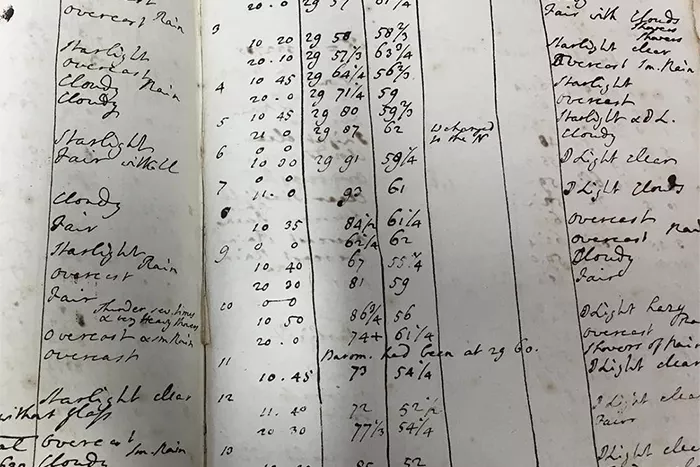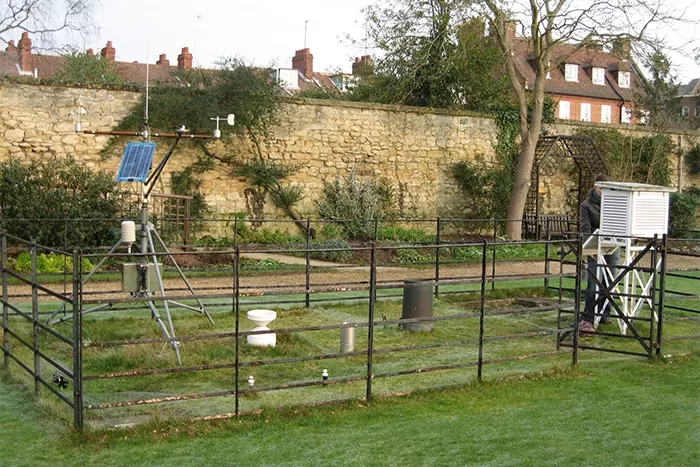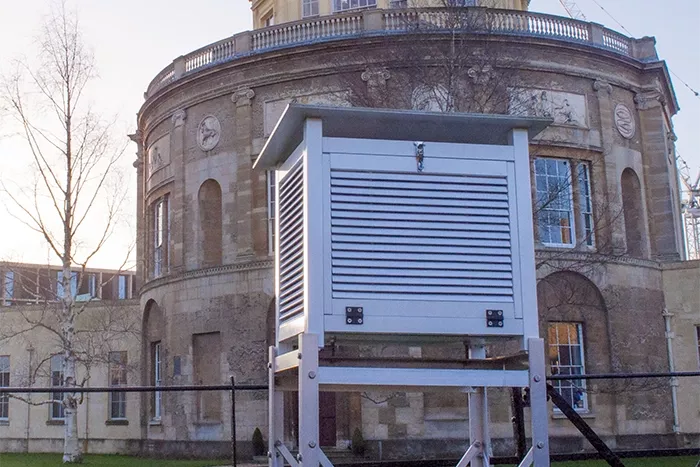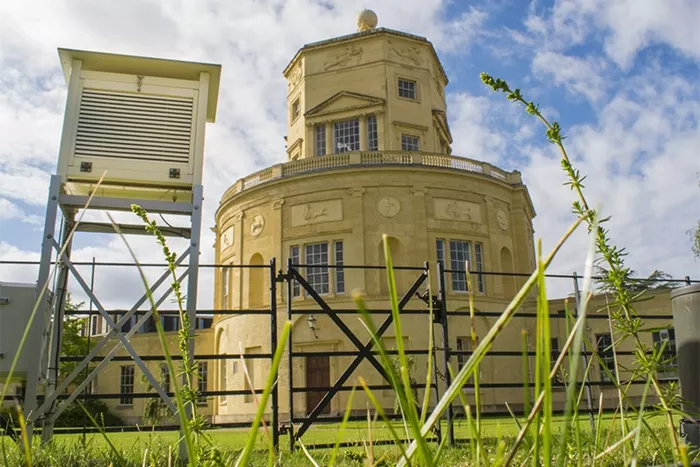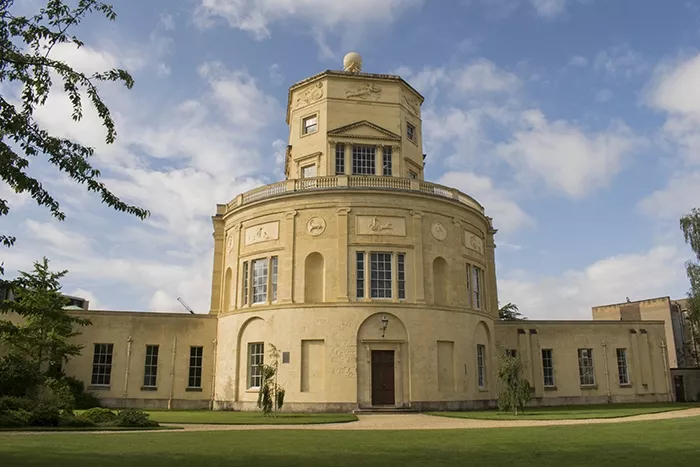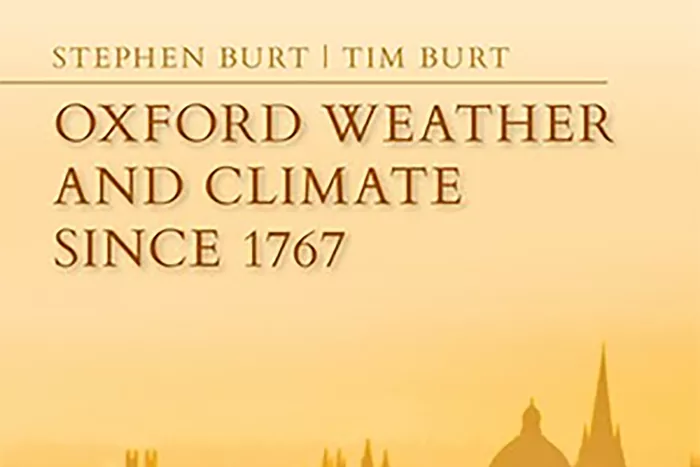The School of Geography and the Environment (SoGE) maintains the Radcliffe Meteorological Station on behalf of the University of Oxford. The site is situated off Woodstock Road in the garden of Green Templeton College, adjacent to the Radcliffe Observatory building.
Meteorological records commenced here in 1772; an unbroken daily air temperature record exists from November 1813, daily rainfall from January 1827 and sunshine from February 1880. These are the longest single-site weather records in the United Kingdom, and amongst the longest in the world. They are especially valuable because the instruments in use and their exposure have been fully documented throughout the record.
As society’s concern about climatic change increases, the daily observations of Oxford weather which continue to be made at the Radcliffe Meteorological Station provide a near-unique reference with which to assess trends in temperature and rainfall over two centuries and more. The School of Geography and the Environment attaches great importance to maintaining this valuable meteorological record.
Over 200 years of weather records
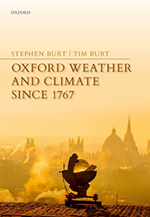 In 2015, the Royal Meteorological Society held a meeting at the School to celebrate 200 years of weather records at the Radcliffe Meteorological Station. Following this meeting, two of the speakers Stephen Burt and Tim Burt began work on the book Oxford Weather and Climate since 1767 which was published by Oxford University Press in May 2019.
In 2015, the Royal Meteorological Society held a meeting at the School to celebrate 200 years of weather records at the Radcliffe Meteorological Station. Following this meeting, two of the speakers Stephen Burt and Tim Burt began work on the book Oxford Weather and Climate since 1767 which was published by Oxford University Press in May 2019.
The book documents and analyses the entire Radcliffe record for the first time, including data up to the close of 2018: Appendix 6 includes tables of monthly and annual summaries of Oxford’s weather by year from 1813.
Burt, Stephen and Burt, Tim, 2019. Oxford Weather and Climate since 1767. Oxford University Press, 544pp.
Further information
For more information about the Radcliffe Meteorological Station or its records, please contact a Radcliffe observer at rms@ouce.ox.ac.uk or the Director of the Radcliffe Met Station: Professor Richard Washington.


